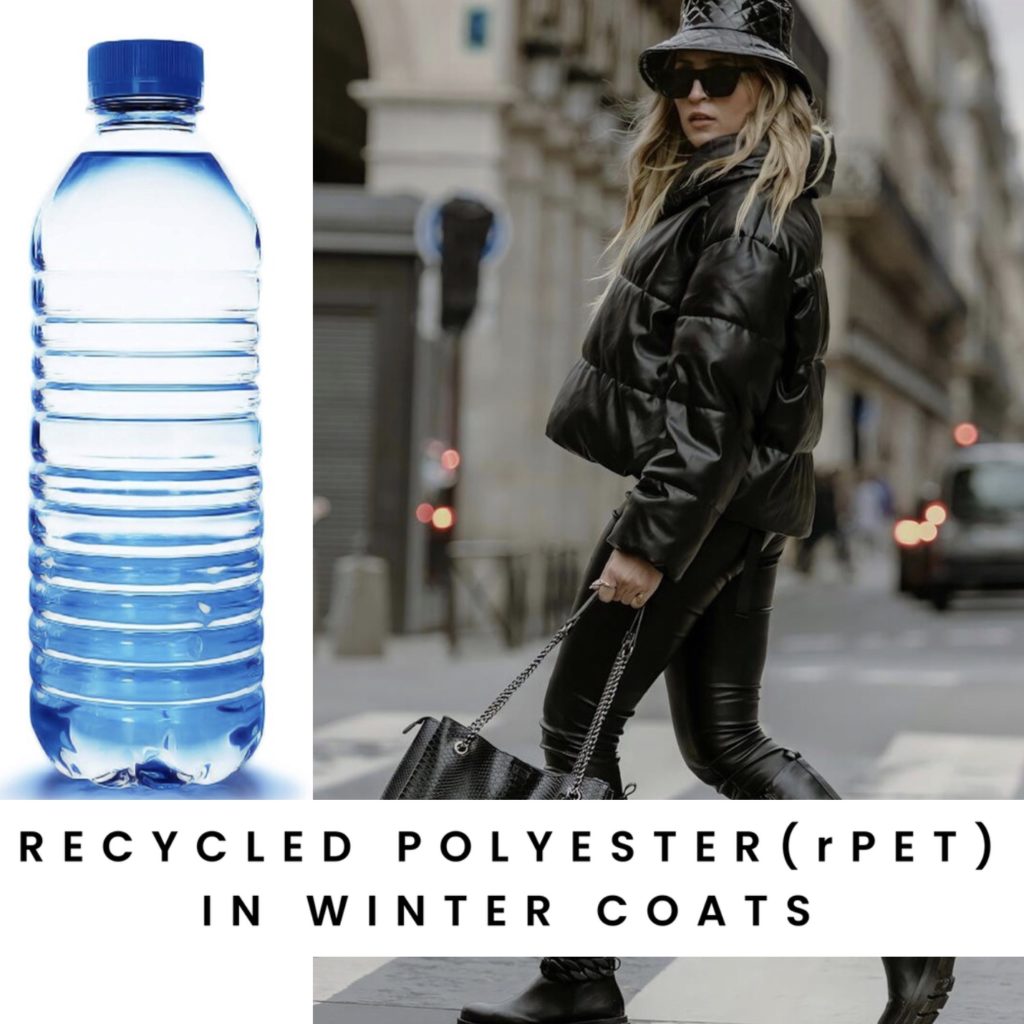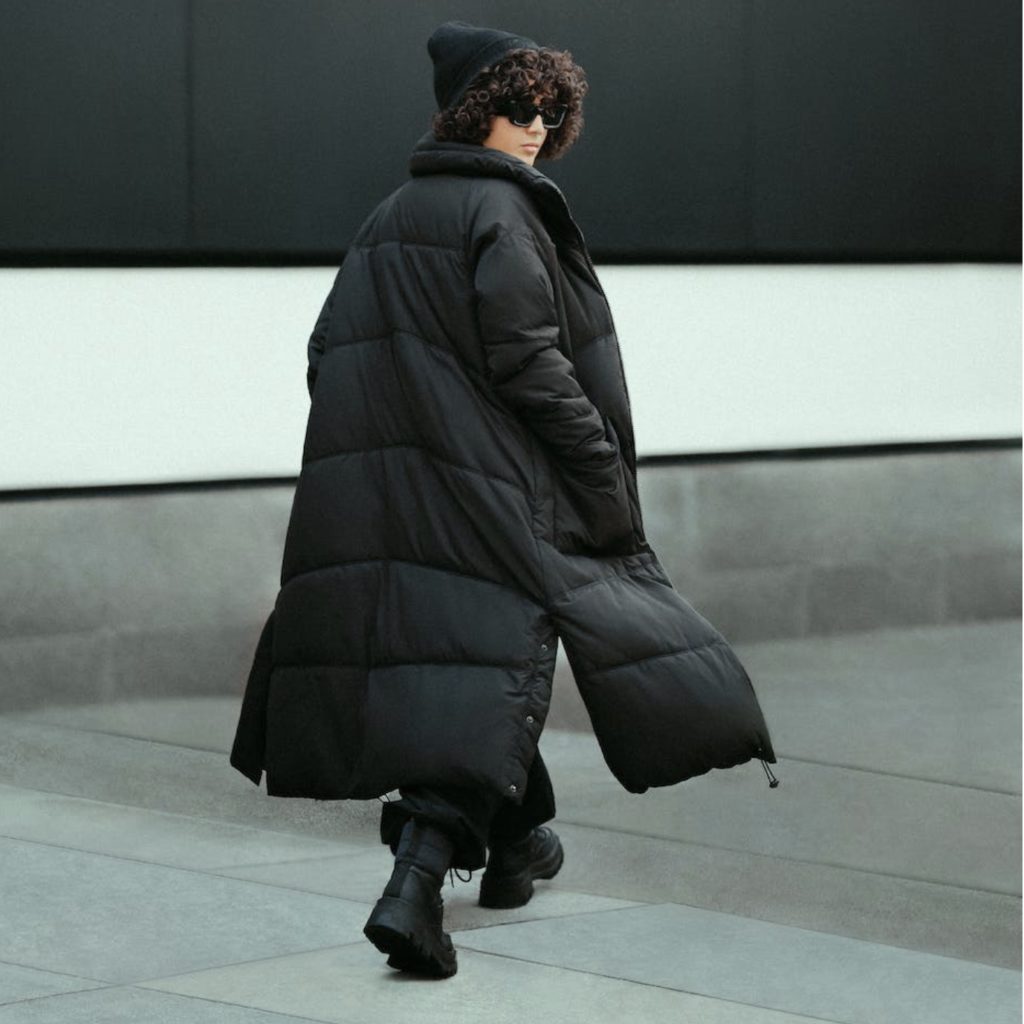30% OFF ALL TOTES, PURSES & BACKPACKS | 30% OFF ALL DRESSES & Skirts | 30% OFF ALL BLAZERS JACKETS | Mid-Season Clearance: Up To 80% Off
Menu:
From Water Bottles to Winter Coats: Recycled Polyester In Winter Coats – Your Eco-Friendly & Warm Winter Wardrobe Solution
By Jennifer Strong │ December.12.2023
Manufacturing non-sustainable winter coats exerts a heavy toll on the environment. These coats are often made from synthetic materials (normal polyester being one of them), and derived from non-renewable petrochemicals. Their production contributes significantly to greenhouse gas emissions.
Choosing a sustainable winter coat is a positive step towards a greener wardrobe and environement. Opt for materials like organic cotton, recycled polyester, and TENCEL™ Lyocell, which have lower environmental impacts compared to conventional options. These fabrics use less water, energy, and chemicals in production, reducing their overall carbon footprint.

Look for coats with certifications like GOTS (Global Organic Textile Standard) or RDS (Responsible Down Standard). These ensure that the materials used are sourced ethically and with minimal environmental impact. Additionally, consider brands that prioritize fair labor practices and transparent supply chains.

Recycled polyester, commonly referred to as rPet, is an eco-friendly fabric that is produced from recycled plastic bottles. The process of obtaining recycled polyester involves melting down pre-existing plastic and re-spinning it into new polyester fiber. For instance, five water bottles produce enough fiber to create a single T-shirt.
Recycled polyester is an excellent means of reducing the amount of plastic that is deposited in our landfills. The production of recycled polyester necessitates considerably fewer resources, approximately 60% less, than the manufacturing process involved in producing new regular polyester. Furthermore, the production of recycled polyester results in fewer CO2 emissions in its production process, around 40%, compared to the production of new regular polyester.
Recycled polyester in winter coats acts as insulation that is breathable and retains its flexibility and volume over time. Its blend of fibers provides excellent warm air retention, offering exceptional protection against the cold. It’s also hypoallergenic, and moisture and mildew resistant.
It is essential to consider the limitations of recycled polyester. Despite its sustainability benefits, it remains non-biodegradable and takes a significant amount of time to decompose after disposal. It is noteworthy that even garments made entirely from regular polyester can only be recycled to a certain extent as well.
It is crucial to recognize that sustainable materials have advantages and disadvantages. However, embracing sustainable practices can significantly reduce fashion’s environmental impact.



Quick Links

180 Bloor St. West
Toronto, ON
M5S 1T6
Email: customercare@mydressedit.com
Phone: 1(844)373-7702 Monday-Friday
Eastern Time Zone 10 am – 4 pm
MyDressEdit.Com© 2022
